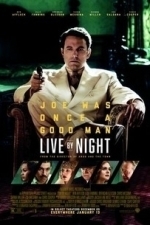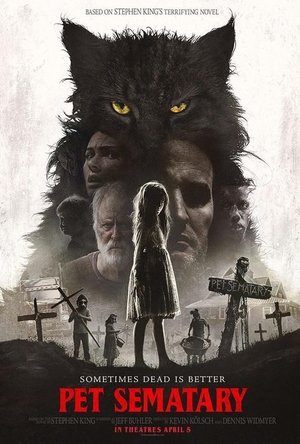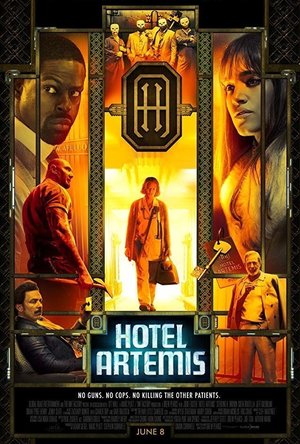Search
Search results
Movie Metropolis (309 KP) rated Dunkirk (2017) in Movies
Jun 10, 2019
A Triumph
Brutal. Spectacular. Emotional. These are just some of the adjectives you could use to describe Christopher Nolan’s latest film, Dunkirk. The director of Inception, The Dark Knight, Memento and Interstellar is one of the greatest film-makers working today and he raises the bar once again with this bleak tale from World War II.
With war, you have to respect the past whilst allowing modern-day film-goers to truly understand the brutality that ordinary people like you and I went through on a daily basis.
In May 1940, Germany had advanced into France, trapping Allied troops on the beaches of Dunkirk. Under air and ground cover from British and French forces, troops were slowly and methodically evacuated from the beach using not only military ships but civilian boats too. At the end of this incredible story of courage, 330,000 French, British, Belgian and Dutch soldiers were safely evacuated.
I found a quote the other day that said “Christopher Nolan is like Michael Bay for people who have ever read a book” and in Dunkirk that seems more apt than ever. Of course there are explosions, many of them, but they are interweaved with some incredible storytelling.
Split into three separate timelines, Dunkirk follows fisherman Mark Rylance as he sails to the beaches as part of the civilian rescue effort. On land we shadow a group of young soldiers desperately trying to get back home. Finally, the film flies alongside Tom Hardy’s brave Spitfire pilot as he tries his best to keep the beaches safe.
Each of the stories has something to offer but Mark Rylance’s performance is definitely the best, making his timeline the most interesting and often the most emotional. Addressing the elephant in the room, Harry Styles, is probably best at this part of the review – he’s excellent and in a much larger part than I had imagined.
In fact, all the performances are excellent, helped in part by Christopher Nolan’s incredible use of close-ups. This is a living, breathing war and as the audience, you feel as claustrophobic as the 400,000 men did waiting on that beach in 1940.
Moreover, the sound is just astonishing. I have never known a film use sound to such an extent to convey sheer terror. The score by Hans Zimmer, coupled with the deafening aircraft flying overhead and the rapid gunfire is incredibly harrowing and makes Dunkirk very hard to watch at times – despite its 12A certification.
Dunkirk is also a masterclass in practical effects. Nearly everything you see on screen was shot without the use of CGI and my goodness you can tell. We’re so used to seeing blockbusters filled to the brim with computer generated imagery that it’s easy to forget just how good practical effects can be.
Overall, Christopher Nolan has created a tasteful homage to a day that has been etched into the minds of generations of people. It would’ve been easy to create a film that focused on the action rather than the human details of this incredible story, but Nolan has managed to craft an absolute triumph. It’s one of the best films of the year and an absolute must-watch.
https://moviemetropolis.net/2017/07/23/dunkirk-review-a-triumph/
With war, you have to respect the past whilst allowing modern-day film-goers to truly understand the brutality that ordinary people like you and I went through on a daily basis.
In May 1940, Germany had advanced into France, trapping Allied troops on the beaches of Dunkirk. Under air and ground cover from British and French forces, troops were slowly and methodically evacuated from the beach using not only military ships but civilian boats too. At the end of this incredible story of courage, 330,000 French, British, Belgian and Dutch soldiers were safely evacuated.
I found a quote the other day that said “Christopher Nolan is like Michael Bay for people who have ever read a book” and in Dunkirk that seems more apt than ever. Of course there are explosions, many of them, but they are interweaved with some incredible storytelling.
Split into three separate timelines, Dunkirk follows fisherman Mark Rylance as he sails to the beaches as part of the civilian rescue effort. On land we shadow a group of young soldiers desperately trying to get back home. Finally, the film flies alongside Tom Hardy’s brave Spitfire pilot as he tries his best to keep the beaches safe.
Each of the stories has something to offer but Mark Rylance’s performance is definitely the best, making his timeline the most interesting and often the most emotional. Addressing the elephant in the room, Harry Styles, is probably best at this part of the review – he’s excellent and in a much larger part than I had imagined.
In fact, all the performances are excellent, helped in part by Christopher Nolan’s incredible use of close-ups. This is a living, breathing war and as the audience, you feel as claustrophobic as the 400,000 men did waiting on that beach in 1940.
Moreover, the sound is just astonishing. I have never known a film use sound to such an extent to convey sheer terror. The score by Hans Zimmer, coupled with the deafening aircraft flying overhead and the rapid gunfire is incredibly harrowing and makes Dunkirk very hard to watch at times – despite its 12A certification.
Dunkirk is also a masterclass in practical effects. Nearly everything you see on screen was shot without the use of CGI and my goodness you can tell. We’re so used to seeing blockbusters filled to the brim with computer generated imagery that it’s easy to forget just how good practical effects can be.
Overall, Christopher Nolan has created a tasteful homage to a day that has been etched into the minds of generations of people. It would’ve been easy to create a film that focused on the action rather than the human details of this incredible story, but Nolan has managed to craft an absolute triumph. It’s one of the best films of the year and an absolute must-watch.
https://moviemetropolis.net/2017/07/23/dunkirk-review-a-triumph/
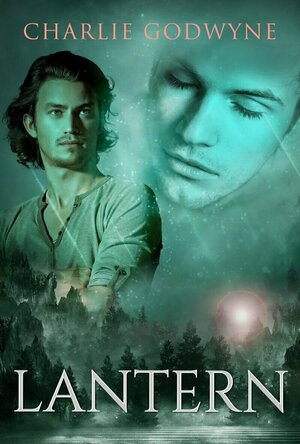
Lantern (Danubian #1)
Book
In the black night, I alone uphold the shrine of the seven lantern gods. The year is 2448....
MM Paranormal Romance

Find My Fitbit - Finder App For Your Lost Fitbit
Health & Fitness and Utilities
App
Find Your Lost Fitbit Fast. Need Help Finding Your Fitbit? Find Your Fitbit In Minutes. Try The App...
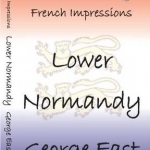
Lower Normandy
Book
The sixth in the popular French Impressions series, taking the form of a personal travel narrative...
Sophia (Bookwyrming Thoughts) (530 KP) rated Daughter of Isis (Descendants of Isis #1) in Books
Jan 23, 2020
<b><i>I received this book for free from Author in exchange for an honest review. This does not affect my opinion of the book or the content of my review.</i></b>
The first book in Kelsey Ketch's <em>Descendants of Isis</em> series is a book with very heavy romance.
Of course, I was highly aware of that upon reading the synopsis.
But I'm an absolute sucker for mythology of all kinds (This is why I am highly interested in debut author Heidi Helig's <em>The Girl From Everywhere</em>. I mean, <em>Hawaiian</em>. Saucer eyes RIGHT here! I intend on waiting until the book is published, though.) and I simply couldn't resist myself. So instead of moping about the possibility of a heavy romance, I replaced my "NUUU ROMANCE" hat with my "TOLERABLE ROMANTIC" hat (the caps are intentional), sat back with my tablet (after transferring the review copy from the computer), and just hoped Ketch would take me on an unforgettable journey.
Natti has just moved from London to a small town in California after her Grandmother's death, with her only clue in a necklace she inherited. Since the first day Natti starts at her new school, Seth O'Keefe starts pursuing her in the hopes of seducing her.
Plus, Tolerable Romantic (I'll stop capping my hats now) hat says it's not exactly love at first sight Natti is completely resistant to Seth's attempts at charming her from the beginning, even though she sort of succumbs to his charms eventually. At that point in time, however, I know each of the characters well enough and have a particular fondness for each of them (for the first in a series) that it isn't awkward at all.
Ketch writes the book in two views: Natti's and Seth's. Natti's comparison of British life to American life and big city to a small town is mildly hilarious (we totally do everything backward). Even though she would rather remain in England, she smoothly transitions into her new life after meeting Wanda, Kevin, and Jen and being tucked under their wings.
Also, she has a fire in her I kind of like.
I honestly feel having Seth's view works out in the book's favor; hearing from his point of view makes him a lot more human than he comes out as with the other Sons of Set: someone who worships the Egyptian god Set and spreads chaos in the world on his behalf, hoping to eventually come across a secret from the past. They also sound insane and just want to take over the world one woman at a time.
It basically puts him in an entirely different perspective for readers than simply reading what Natti thinks of him.
<div class="separator" style="clear: both; text-align: center;"><a style="margin-left: 1em; margin-right: 1em;" href="http://3.bp.blogspot.com/-kFwoMM-NvD4/VodHIVFyhoI/AAAAAAAAFqQ/y-lTjSgr4j0/s1600/perspective.gif"><img src="http://bookwyrmingthoughts.bookblog.io/wp-content/uploads/sites/317/2016/01/perspective.gif"; width="320" height="240" border="0" /></a></div>
<em>Daughter of Isis</em> is one of those books where I'll probably keep my Tolerable Romantic hat on for the entire series because the romance between Seth and Natti fits the story really well. The world Kelsey builds in a small town California where nearly everyone is under the thumb of the Sons of Set captivated me by the end of the book I can't wait to see what trials the couple will face in the future of the series.
<a href="https://bookwyrmingthoughts.com/review-daughter-of-isis-by-kelsey-ketc/"; target="_blank">This review was originally posted on Bookwyrming Thoughts</a>
The first book in Kelsey Ketch's <em>Descendants of Isis</em> series is a book with very heavy romance.
Of course, I was highly aware of that upon reading the synopsis.
But I'm an absolute sucker for mythology of all kinds (This is why I am highly interested in debut author Heidi Helig's <em>The Girl From Everywhere</em>. I mean, <em>Hawaiian</em>. Saucer eyes RIGHT here! I intend on waiting until the book is published, though.) and I simply couldn't resist myself. So instead of moping about the possibility of a heavy romance, I replaced my "NUUU ROMANCE" hat with my "TOLERABLE ROMANTIC" hat (the caps are intentional), sat back with my tablet (after transferring the review copy from the computer), and just hoped Ketch would take me on an unforgettable journey.
Natti has just moved from London to a small town in California after her Grandmother's death, with her only clue in a necklace she inherited. Since the first day Natti starts at her new school, Seth O'Keefe starts pursuing her in the hopes of seducing her.
Plus, Tolerable Romantic (I'll stop capping my hats now) hat says it's not exactly love at first sight Natti is completely resistant to Seth's attempts at charming her from the beginning, even though she sort of succumbs to his charms eventually. At that point in time, however, I know each of the characters well enough and have a particular fondness for each of them (for the first in a series) that it isn't awkward at all.
Ketch writes the book in two views: Natti's and Seth's. Natti's comparison of British life to American life and big city to a small town is mildly hilarious (we totally do everything backward). Even though she would rather remain in England, she smoothly transitions into her new life after meeting Wanda, Kevin, and Jen and being tucked under their wings.
Also, she has a fire in her I kind of like.
I honestly feel having Seth's view works out in the book's favor; hearing from his point of view makes him a lot more human than he comes out as with the other Sons of Set: someone who worships the Egyptian god Set and spreads chaos in the world on his behalf, hoping to eventually come across a secret from the past. They also sound insane and just want to take over the world one woman at a time.
It basically puts him in an entirely different perspective for readers than simply reading what Natti thinks of him.
<div class="separator" style="clear: both; text-align: center;"><a style="margin-left: 1em; margin-right: 1em;" href="http://3.bp.blogspot.com/-kFwoMM-NvD4/VodHIVFyhoI/AAAAAAAAFqQ/y-lTjSgr4j0/s1600/perspective.gif"><img src="http://bookwyrmingthoughts.bookblog.io/wp-content/uploads/sites/317/2016/01/perspective.gif"; width="320" height="240" border="0" /></a></div>
<em>Daughter of Isis</em> is one of those books where I'll probably keep my Tolerable Romantic hat on for the entire series because the romance between Seth and Natti fits the story really well. The world Kelsey builds in a small town California where nearly everyone is under the thumb of the Sons of Set captivated me by the end of the book I can't wait to see what trials the couple will face in the future of the series.
<a href="https://bookwyrmingthoughts.com/review-daughter-of-isis-by-kelsey-ketc/"; target="_blank">This review was originally posted on Bookwyrming Thoughts</a>
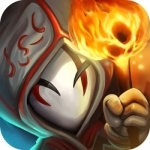
The Greedy Cave
Games and Entertainment
App
In a land far, far away there once was a vast continent called Milton. It was a land where the power...
Bob Mann (459 KP) rated Live By Night (2017) in Movies
Sep 29, 2021
“Sleep by day…”.
Ben Affleck’s new movie could best be described as “sprawling”. In both directing and writing the screenplay (based on a novel by Dennis Lehane), Affleck has aimed for a “Godfather” style gangster epic and missed: not missed by a country mile, but missed nonetheless.
Morally bankrupted by his experiences in the trenches, Joe Coughlin (Affleck) returns to Boston to pick and choose which social rules he wants to follow. Not sociopathic per se, as he has a strong personal code of conduct, but Coughlin turns to robbery walking a delicate path between the warring mob factions of the Irish community, led by Albert White (the excellent Robert Glenister from TV’s “Hustle”), and the Italian community, led by Maso Pescatore (Remo Girone). Trying to keep him out of jail is his father (“Harry Potter”’s Brendan Gleeson) who – usefully – is the Deputy Police Chief. Life gets complicated when he falls in love with White’s moll, Emma Gould (Sienna Miller). The scene is set for a drama stretching from Boston to the hot and steamy Everglades over a period of the next twenty years.
Although a watchable popcorn film, the choppy episodic nature of the movie is hugely frustrating, with no compelling story arc to glue all of the disparate parts together. The (often very violent) action scenes are very well done and exciting but as a viewer you don’t feel invested in a ‘journey’ from the beginning of the film to the (unsatisfactory) ending. In my experience it’s never a good sign when the writer considers it necessary to add a voiceover to the soundtrack, and here Affleck mutters truisms about his thoughts and motives that irritate more than illuminate.
The sheer volume of players in the piece (there are about three film’s worth in here) and the resulting minimal screen time given to each allows no time for character development. Unfortunately the result is that you really care very little about whether people live or die and big plot developments land as rather an “oh” than an “OH!”.
Affleck puts in a great turn as the autistic central character whose condition results in a cold, calculating demeanor and a complete lack of emotion reflecting on his face. Oh, hang on… no, wait a minute… sorry… I’ve got the wrong film…. I’m thinking about “The Accountant”. I don’t know whether he filmed these films in parallel. I generally enjoy Ben Affleck’s work (he was excellent in “The Town”) but for 95% of this film his part could have been completed by a burly extra with an Affleck mask on. In terms of acting range, his facial muscles barely get to a “2” on the scale. Given the double problem that he is barely credible as the “young man” returning mentally wounded from the trenches, then in my opinion he would have been better to have focused on the writing and directing and found a lead of the likes of an Andrew Garfield to fill Coughlin’s shoes.
That’s not to say there is not some good acting present in the rest of the cast’s all too brief supporting roles. Elle Fanning (“Trumbo”, “Maleficent”) in particular shines as the Southern belle Loretta Figgis: a religious zealot driving her police chief father (Chris Cooper, “The Bourne Identity”) to distraction. Cooper also delivers a star turn as the moral but pragmatic law-man.
Sienna Miller (“Foxcatcher”) delivers a passable Cork accent and does her best to develop some believable chemistry with the rock-like Affleck. Zoe Saldana (“Star Trek”) is equally effective as a Cuban humanitarian.
In summary, it’s sprawlingly watchable… but overall a disappointment, with Affleck over-reaching. One day we surely will get a gangster film the likes of another “Godfather”, “Goodfellas” or “Untouchables”. Although this has its moments, unfortunately it’s more towards the “Public Enemies” end of the genre spectrum.
Morally bankrupted by his experiences in the trenches, Joe Coughlin (Affleck) returns to Boston to pick and choose which social rules he wants to follow. Not sociopathic per se, as he has a strong personal code of conduct, but Coughlin turns to robbery walking a delicate path between the warring mob factions of the Irish community, led by Albert White (the excellent Robert Glenister from TV’s “Hustle”), and the Italian community, led by Maso Pescatore (Remo Girone). Trying to keep him out of jail is his father (“Harry Potter”’s Brendan Gleeson) who – usefully – is the Deputy Police Chief. Life gets complicated when he falls in love with White’s moll, Emma Gould (Sienna Miller). The scene is set for a drama stretching from Boston to the hot and steamy Everglades over a period of the next twenty years.
Although a watchable popcorn film, the choppy episodic nature of the movie is hugely frustrating, with no compelling story arc to glue all of the disparate parts together. The (often very violent) action scenes are very well done and exciting but as a viewer you don’t feel invested in a ‘journey’ from the beginning of the film to the (unsatisfactory) ending. In my experience it’s never a good sign when the writer considers it necessary to add a voiceover to the soundtrack, and here Affleck mutters truisms about his thoughts and motives that irritate more than illuminate.
The sheer volume of players in the piece (there are about three film’s worth in here) and the resulting minimal screen time given to each allows no time for character development. Unfortunately the result is that you really care very little about whether people live or die and big plot developments land as rather an “oh” than an “OH!”.
Affleck puts in a great turn as the autistic central character whose condition results in a cold, calculating demeanor and a complete lack of emotion reflecting on his face. Oh, hang on… no, wait a minute… sorry… I’ve got the wrong film…. I’m thinking about “The Accountant”. I don’t know whether he filmed these films in parallel. I generally enjoy Ben Affleck’s work (he was excellent in “The Town”) but for 95% of this film his part could have been completed by a burly extra with an Affleck mask on. In terms of acting range, his facial muscles barely get to a “2” on the scale. Given the double problem that he is barely credible as the “young man” returning mentally wounded from the trenches, then in my opinion he would have been better to have focused on the writing and directing and found a lead of the likes of an Andrew Garfield to fill Coughlin’s shoes.
That’s not to say there is not some good acting present in the rest of the cast’s all too brief supporting roles. Elle Fanning (“Trumbo”, “Maleficent”) in particular shines as the Southern belle Loretta Figgis: a religious zealot driving her police chief father (Chris Cooper, “The Bourne Identity”) to distraction. Cooper also delivers a star turn as the moral but pragmatic law-man.
Sienna Miller (“Foxcatcher”) delivers a passable Cork accent and does her best to develop some believable chemistry with the rock-like Affleck. Zoe Saldana (“Star Trek”) is equally effective as a Cuban humanitarian.
In summary, it’s sprawlingly watchable… but overall a disappointment, with Affleck over-reaching. One day we surely will get a gangster film the likes of another “Godfather”, “Goodfellas” or “Untouchables”. Although this has its moments, unfortunately it’s more towards the “Public Enemies” end of the genre spectrum.
Gareth von Kallenbach (980 KP) rated Jobs (2013) in Movies
Aug 6, 2019
Whatever you may think of the Apple line of products, Apple as a company, or Steve Jobs himself; one cannot deny that Apple is an innovator and one of those companies that shape economies as well as how we see ourselves.
JOBS is the story of Steve Jobs who, after dropping out of college, created the billion-dollar company so many people buy phones from now. Ashton Kutcher portrays Jobs right down to his many behavioral quirks, and does a very good job; there were even times I forgot I was watching Kutcher. He even mimicked the set of Jobs’ mouth perfectly. I found myself wondering if the people who knew Jobs would feel like they were seeing a ghost.
The movie follows Jobs as he drops acid in the 60s, finds computers in the 70s, “grows up”, while growing his business, in the 80s, and then actually grows up in the early 90s (kind of). It is well known that Jobs was hard to with, but this film shows that he was a gigantic jerk at times. He cut people out of things others would think they deserved; he treated his friends and coworkers alike, and never batted an eyelash at the hurtful things he said to those people. That being said; he truly had a vision and knew what it would take to make that vision come to life. Most driven people tend to be selfish and Jobs was no exception to this; he actually took it to a whole new level at times. The movie doesn’t shy away from this side of his personality, but it does try to explain some of the ticks. This was an area that I thought could have been done a bit better; it would have been nice to see what about his childhood left such an impression that he felt it was ok to be so mean to people. At times I found the movie difficult to watch simply due to his treatment of others, and total lack of understanding how what he said and did affected them. “Oh, that’s just Steve” was an actual line said in the film.
Other than this I found JOBS to be a very interesting look into a modern day legend. One that doesn’t pull as many punches as I thought it would, but that also doesn’t make a villain of a man who, while having extraordinary vision, was nothing more than a man.
If you are a fan of Apple, Jobs, or are just looking for a break from the summer block buster movies, check out JOBS.
JOBS is the story of Steve Jobs who, after dropping out of college, created the billion-dollar company so many people buy phones from now. Ashton Kutcher portrays Jobs right down to his many behavioral quirks, and does a very good job; there were even times I forgot I was watching Kutcher. He even mimicked the set of Jobs’ mouth perfectly. I found myself wondering if the people who knew Jobs would feel like they were seeing a ghost.
The movie follows Jobs as he drops acid in the 60s, finds computers in the 70s, “grows up”, while growing his business, in the 80s, and then actually grows up in the early 90s (kind of). It is well known that Jobs was hard to with, but this film shows that he was a gigantic jerk at times. He cut people out of things others would think they deserved; he treated his friends and coworkers alike, and never batted an eyelash at the hurtful things he said to those people. That being said; he truly had a vision and knew what it would take to make that vision come to life. Most driven people tend to be selfish and Jobs was no exception to this; he actually took it to a whole new level at times. The movie doesn’t shy away from this side of his personality, but it does try to explain some of the ticks. This was an area that I thought could have been done a bit better; it would have been nice to see what about his childhood left such an impression that he felt it was ok to be so mean to people. At times I found the movie difficult to watch simply due to his treatment of others, and total lack of understanding how what he said and did affected them. “Oh, that’s just Steve” was an actual line said in the film.
Other than this I found JOBS to be a very interesting look into a modern day legend. One that doesn’t pull as many punches as I thought it would, but that also doesn’t make a villain of a man who, while having extraordinary vision, was nothing more than a man.
If you are a fan of Apple, Jobs, or are just looking for a break from the summer block buster movies, check out JOBS.
Charlie Cobra Reviews (1840 KP) rated Pet Sematary (2019) in Movies
Jul 7, 2020 (Updated Nov 1, 2020)
A Really Good Remake
Pet Semetary is a 2019 supernatural horror movie directed by Kevin Kolsch and Dennis Widmyer. The movie was written by Jeff Buhler with screen story by Matt Greenberg. It is a remake/reboot of the original 1989 film adaptation of the 1983 Stephen King novel. Starring Jason Clarke, Amy Seimetz, and John Lithgow.
Moving to the small town of Ludlow, Maine with his family: wife, Rachel (Amy Seimetz), children, Ellie (Jete Laurence) and Gage (Hugo & Lucas Lavoie), and Church, Ellie's cat, Louis Creed takes a job at the university's hospital. Ellie stumbles upon a procession of children, while exploring the nearby woods of their new home, who are taking a dead dog to a pet cemetery. Their neighbor, Jud Crandall (John Lithgow), finds Ellie climbing a large stack of branches forming a wall and warns Rachel and Ellie not to venture out alone as the woods can be dangerous.. The following day, Louis fails to save a student Victor Pascow (Obssa Ahmed) fatally injured from a car accident, and is left shaken. That night Louis meets Pascow in a vivid dream, where he is lead to the pet cemetery and warned not to "venture beyond". When Louis awakens he is disturbed to find his bed sheets and feet, muddy and dirty suggesting his "vision" could be more than just a bad dream.
As far as remakes go this one was really good. Especially for the horror genre. I mean I can't tell you how many remakes/reboots I've seen that just bomb and don't do the original justice. This one however seemed to keep the original in mind, while still making changes to keep it fresh and relatively different. That being said I do feel it was a bit over-hyped and didn't live up to certain expectations. To me it was a very creepy movie and had me wanting to cover my eyes in one part as memories from the original played back in my head. The sounds of the character Rachel's sister calling out to her got goosebumps on my forearms. Those parts were very unsettling to me but I didn't feel enough was "scary". I really enjoyed the twists and changes or differences from the original. They were welcome and kept it from being an exact replica and a copy of the original. As another critic stated, Jeffrey M. Anderson-Common Sense Media, the film was "...effectively unsettling, focusing on the characters and their understandable emotions rather than on overt gore and FX." I give it a 7/10.
Moving to the small town of Ludlow, Maine with his family: wife, Rachel (Amy Seimetz), children, Ellie (Jete Laurence) and Gage (Hugo & Lucas Lavoie), and Church, Ellie's cat, Louis Creed takes a job at the university's hospital. Ellie stumbles upon a procession of children, while exploring the nearby woods of their new home, who are taking a dead dog to a pet cemetery. Their neighbor, Jud Crandall (John Lithgow), finds Ellie climbing a large stack of branches forming a wall and warns Rachel and Ellie not to venture out alone as the woods can be dangerous.. The following day, Louis fails to save a student Victor Pascow (Obssa Ahmed) fatally injured from a car accident, and is left shaken. That night Louis meets Pascow in a vivid dream, where he is lead to the pet cemetery and warned not to "venture beyond". When Louis awakens he is disturbed to find his bed sheets and feet, muddy and dirty suggesting his "vision" could be more than just a bad dream.
As far as remakes go this one was really good. Especially for the horror genre. I mean I can't tell you how many remakes/reboots I've seen that just bomb and don't do the original justice. This one however seemed to keep the original in mind, while still making changes to keep it fresh and relatively different. That being said I do feel it was a bit over-hyped and didn't live up to certain expectations. To me it was a very creepy movie and had me wanting to cover my eyes in one part as memories from the original played back in my head. The sounds of the character Rachel's sister calling out to her got goosebumps on my forearms. Those parts were very unsettling to me but I didn't feel enough was "scary". I really enjoyed the twists and changes or differences from the original. They were welcome and kept it from being an exact replica and a copy of the original. As another critic stated, Jeffrey M. Anderson-Common Sense Media, the film was "...effectively unsettling, focusing on the characters and their understandable emotions rather than on overt gore and FX." I give it a 7/10.
BankofMarquis (1832 KP) rated Hotel Artemis (2018) in Movies
Feb 10, 2019
Not as interesting as it wanted to be
On my airplane ride from Mpls to San Diego I was able to catch up with gritty, action-noir thriller BAD TIMES AT THE EL ROYALE and was really surprised by how much I enjoyed it. So, I was excited to see that another gritty,, action-noir film, HOTEL ARTEMIS was showing on the flight back.
Well...HOTEL ARTEMIS is no EL ROYALE and maybe that's not fair to Artemis, for I was constantly comparing the two films, so let me see if I can separate the 2 and hold HOTEL ARTEMIS up to it's own scrutiny.
Telling the tale of a JOHN WICK-type world where - instead of a safehouse Hotel for crooks, the HOTEL ARTEMIS is a safehouse HOSPITAL for crooks where the rules are that the crooks cannot hurt each other on the premises. When a riot breaks out in downtown Los Angeles, the rules go out the window and mayhem - and violence - ensue.
Well...this film is no JOHN WICK either. Oh shoot, I've done it again. I've compared this film to another film.
And that's the problem with HOTEL ARTEMIS, it treads ground that has been trod better - and with more style - before. So this film, no matter how well intention-ed, falls short in originality, style and substance. I was still entertained, but not as entertained as I was by JOHN WICK or EL ROYALE.
Jodie Foster (in her first acting role since 2013's ELYSIUM) stars as the person who runs the Artemis. She has a mysterious background (of course) and runs the Artemis with an emotional-less efficiency. Her performance is quirky and interesting and almost holds the film together - almost. She is joined by Sterling K. Brown, Charlie Day, Brian Tyree Henry and Sofia Boutella as patients in the Hotel - none of which were interesting or unusual. They all were playing variants of the characters they usually play, almost as if Director/Writer Drew Pearce said "Get my a Charlie Day-type and a Sterling K. Brown-type", and the Casting Director thought they "scored" by getting the original person - each of whom looks like they are coasting through this film at about 70% output.
Only Dave Bautista shines as the "Health Care Professional" who works with Foster. He brings an interesting charisma to his character and was almost the high point in the film.
Almost. All of the performances pale in comparison to the Mob Boss who shows up about 2/3 of the way through the film. This character is talked about in reverential and scary terms throughout the film. The build-up was huge for this character and I was prepared for the inevitable let down when the mob boss finally shows up, but when the elevator door opens up and I saw that is was Jeff Goldblum in "full Goldblum" mode, I was thrilled and he did not disappoint. He commanded the screen at a time that the film was getting tiresome and he wound up the characters, the energy of the film and the action to help it ride to its inevitable, bloody conclusion.
Ultimately, Pearce delivered a solid B- film, one that has moments of quirk and interest, but set against a backdrop - and supporting actors - that are subdued and not memorable. This is a cardinal sin for this kind of film, instead of subduing those parts, Pearce needed to enhance those and he just plainly did not.
If you want to see a good, stylized, gritty action film, with interesting locales and supporting players, check out JOHN WICK or BAD TIMES AT THE EL ROYALE. If you've seen these, HOTEL ARTEMIS is fine, but the other two do it better.
Letter Grade: B-
6 (out of 10) stars and you can take that to the Bank(ofMarquis)
Well...HOTEL ARTEMIS is no EL ROYALE and maybe that's not fair to Artemis, for I was constantly comparing the two films, so let me see if I can separate the 2 and hold HOTEL ARTEMIS up to it's own scrutiny.
Telling the tale of a JOHN WICK-type world where - instead of a safehouse Hotel for crooks, the HOTEL ARTEMIS is a safehouse HOSPITAL for crooks where the rules are that the crooks cannot hurt each other on the premises. When a riot breaks out in downtown Los Angeles, the rules go out the window and mayhem - and violence - ensue.
Well...this film is no JOHN WICK either. Oh shoot, I've done it again. I've compared this film to another film.
And that's the problem with HOTEL ARTEMIS, it treads ground that has been trod better - and with more style - before. So this film, no matter how well intention-ed, falls short in originality, style and substance. I was still entertained, but not as entertained as I was by JOHN WICK or EL ROYALE.
Jodie Foster (in her first acting role since 2013's ELYSIUM) stars as the person who runs the Artemis. She has a mysterious background (of course) and runs the Artemis with an emotional-less efficiency. Her performance is quirky and interesting and almost holds the film together - almost. She is joined by Sterling K. Brown, Charlie Day, Brian Tyree Henry and Sofia Boutella as patients in the Hotel - none of which were interesting or unusual. They all were playing variants of the characters they usually play, almost as if Director/Writer Drew Pearce said "Get my a Charlie Day-type and a Sterling K. Brown-type", and the Casting Director thought they "scored" by getting the original person - each of whom looks like they are coasting through this film at about 70% output.
Only Dave Bautista shines as the "Health Care Professional" who works with Foster. He brings an interesting charisma to his character and was almost the high point in the film.
Almost. All of the performances pale in comparison to the Mob Boss who shows up about 2/3 of the way through the film. This character is talked about in reverential and scary terms throughout the film. The build-up was huge for this character and I was prepared for the inevitable let down when the mob boss finally shows up, but when the elevator door opens up and I saw that is was Jeff Goldblum in "full Goldblum" mode, I was thrilled and he did not disappoint. He commanded the screen at a time that the film was getting tiresome and he wound up the characters, the energy of the film and the action to help it ride to its inevitable, bloody conclusion.
Ultimately, Pearce delivered a solid B- film, one that has moments of quirk and interest, but set against a backdrop - and supporting actors - that are subdued and not memorable. This is a cardinal sin for this kind of film, instead of subduing those parts, Pearce needed to enhance those and he just plainly did not.
If you want to see a good, stylized, gritty action film, with interesting locales and supporting players, check out JOHN WICK or BAD TIMES AT THE EL ROYALE. If you've seen these, HOTEL ARTEMIS is fine, but the other two do it better.
Letter Grade: B-
6 (out of 10) stars and you can take that to the Bank(ofMarquis)


